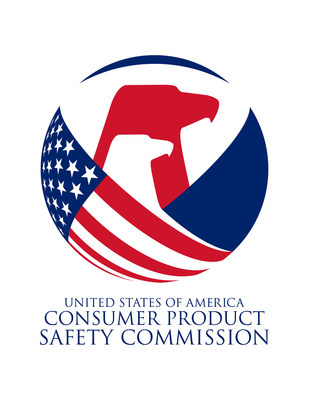CPSC Announces $2 Million Available in Grants to Help State, Local, and Tribal Governments Prevent Carbon Monoxide Poisoning; Apply Now Through December 15, 2023
WASHINGTON, Sept. 28, 2023 /PRNewswire/ -- The U.S. Consumer Product Safety Commission (CPSC) is seeking applications for its Carbon Monoxide Poisoning Prevention Grant Program (COPPGP) to assist state, local and tribal governments reduce deaths and injuries from carbon monoxide poisoning. CPSC can award up to a total of $2 million in grants.
CPSC's grant program is authorized through the Nicholas and Zachary Burt Memorial Carbon Monoxide Poisoning Prevention Act of 2022 (the Act), to provide eligible state, local, and tribal governments with grants to purchase and install carbon monoxide (CO) alarms in residential homes and dwelling units of low-income families or elderly people and facilities that serve children or the elderly, including childcare centers, public schools and senior centers, and to develop training and public education programs with the goal of preventing CO poisoning. This legislation was sponsored by Sen. Amy Klobuchar (D-Minnesota) and Sen. John Hoeven (R-North Dakota) in the Senate, and Rep. Buddy Carter (R-Georgia) and Rep. Annie Kuster (D-New Hampshire) in the House. President Joe Biden signed the bill into law on March 15, 2022.
"Carbon monoxide is an invisible killer that cannot be seen or smelled. More than 400 Americans die each year from CO poisoning," said CPSC Chair Alex Hoehn-Saric. "Carbon monoxide alarms save lives by alerting people to the poison before it is too late. These grants will enable localities to educate their residents and prevent CO poisoning in their communities."
The burning of fuels produces carbon monoxide, which is a colorless, odorless gas. Exposure to unhealthy levels of carbon monoxide can lead to carbon monoxide poisoning, a serious health condition that could result in death. Unintentional carbon monoxide poisoning from motor vehicles and improper operation of fuel-burning appliances, such as furnaces, water heaters, portable generators, and stoves, annually kill more than 400 individuals. Research shows that installing carbon monoxide alarms close to sleeping areas in residential homes and other dwelling units can help avoid fatalities.
Grant applicants must be from a state, local government, Indian Tribe or U. S. Territory that has adopted a statute, rule, regulation or similar measure that requires compliant carbon monoxide alarms to be installed in dwelling units in accordance with National Fire Protection Association (NFPA) 72, the International Fire Code (IFC), or the International Residential Code (IRC).
Prospective applicants can review the Funding Opportunity Announcement (FOA) on Grants.gov, under grant opportunity CP-NZB-23-001. Applications will be accepted through December 15, 2023. Grantees will have two years to use the grant funding to purchase and install CO alarms and complete training and education efforts.
Contact CPSC's Grants Management Specialist Harvey Kincaid at [email protected] or 301-504-7525 for more information.
Visit CPSC's Carbon Monoxide Information Center to learn more about the dangers of CO and how to protect families from invisible killer. https://www.cpsc.gov/Safety-Education/Safety-Education-Centers/Carbon-Monoxide-Information-Center
See CPSC's 2023 Telly Award-winning Public Service Announcement (PSA) "One Portable Generator Produces the Same Amount of Carbon Monoxide as Hundreds of Cars."
Individual Commissioners may have statements related to this topic. Please visit www.cpsc.gov/commissioners to search for statements related to this or other topics.
About the U.S. CPSC
The U.S. Consumer Product Safety Commission (CPSC) is charged with protecting the public from unreasonable risk of injury or death associated with the use of thousands of types of consumer products. Deaths, injuries, and property damage from consumer product-related incidents cost the nation more than $1 trillion annually. CPSC's work to ensure the safety of consumer products has contributed to a decline in the rate of injuries associated with consumer products over the past 50 years.
Federal law prohibits any person from selling products subject to a Commission ordered recall or a voluntary recall undertaken in consultation with the CPSC.
For lifesaving information:
- Visit CPSC.gov.
- Sign up to receive our e-mail alerts.
- Follow us on Facebook, Instagram @USCPSC and Twitter @USCPSC.
- Report a dangerous product or a product-related injury on www.SaferProducts.gov.
- Call CPSC's Hotline at 800-638-2772 (TTY 301-595-7054).
- Contact a media specialist.
Release Number: 23-301
SOURCE U.S. Consumer Product Safety Commission
News published on and distributed by:




